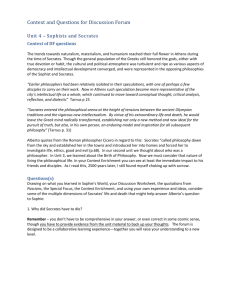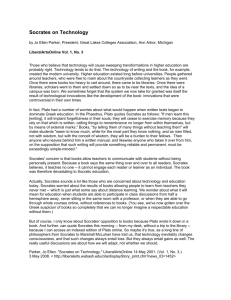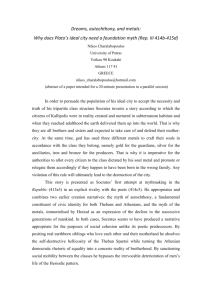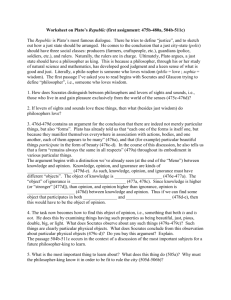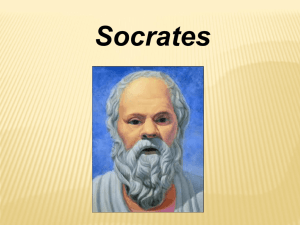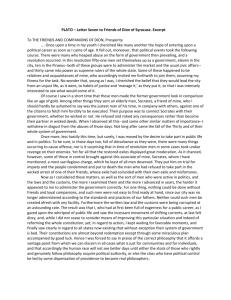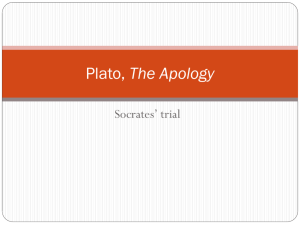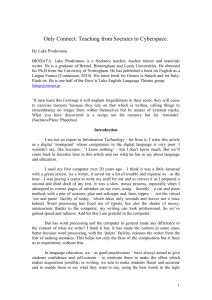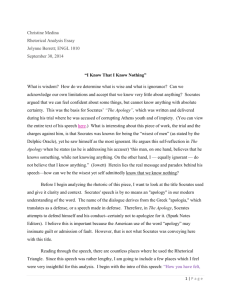Sophie's World: Socrates - Philosophy Chapter
advertisement
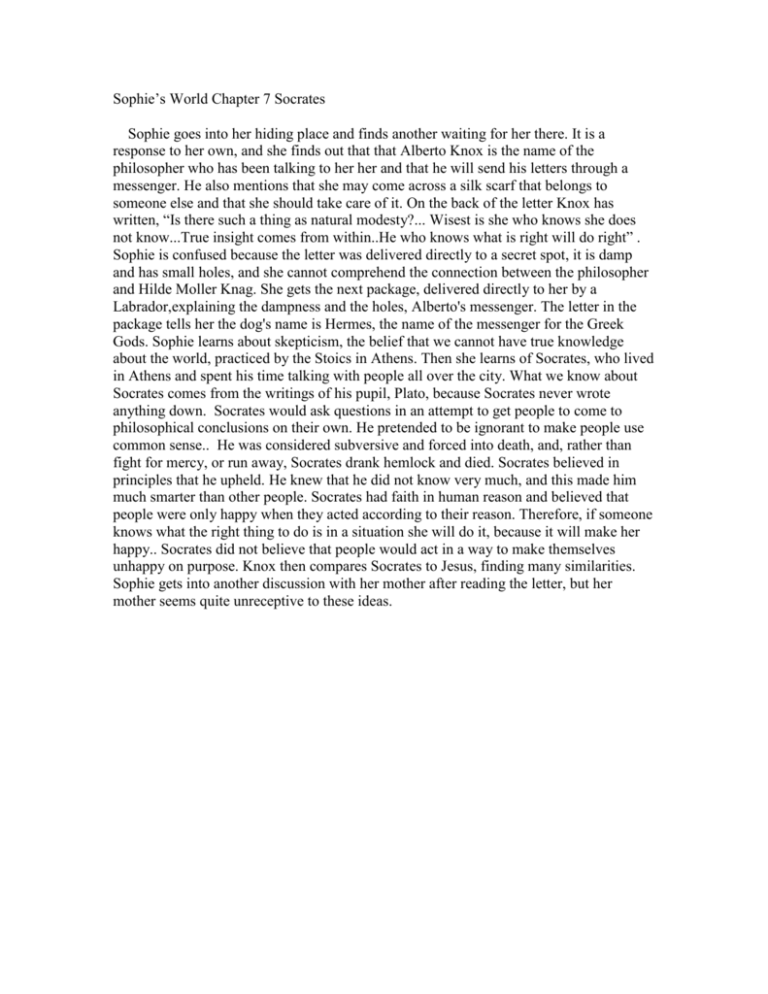
Sophie’s World Chapter 7 Socrates Sophie goes into her hiding place and finds another waiting for her there. It is a response to her own, and she finds out that that Alberto Knox is the name of the philosopher who has been talking to her her and that he will send his letters through a messenger. He also mentions that she may come across a silk scarf that belongs to someone else and that she should take care of it. On the back of the letter Knox has written, “Is there such a thing as natural modesty?... Wisest is she who knows she does not know...True insight comes from within..He who knows what is right will do right” . Sophie is confused because the letter was delivered directly to a secret spot, it is damp and has small holes, and she cannot comprehend the connection between the philosopher and Hilde Moller Knag. She gets the next package, delivered directly to her by a Labrador,explaining the dampness and the holes, Alberto's messenger. The letter in the package tells her the dog's name is Hermes, the name of the messenger for the Greek Gods. Sophie learns about skepticism, the belief that we cannot have true knowledge about the world, practiced by the Stoics in Athens. Then she learns of Socrates, who lived in Athens and spent his time talking with people all over the city. What we know about Socrates comes from the writings of his pupil, Plato, because Socrates never wrote anything down. Socrates would ask questions in an attempt to get people to come to philosophical conclusions on their own. He pretended to be ignorant to make people use common sense.. He was considered subversive and forced into death, and, rather than fight for mercy, or run away, Socrates drank hemlock and died. Socrates believed in principles that he upheld. He knew that he did not know very much, and this made him much smarter than other people. Socrates had faith in human reason and believed that people were only happy when they acted according to their reason. Therefore, if someone knows what the right thing to do is in a situation she will do it, because it will make her happy.. Socrates did not believe that people would act in a way to make themselves unhappy on purpose. Knox then compares Socrates to Jesus, finding many similarities. Sophie gets into another discussion with her mother after reading the letter, but her mother seems quite unreceptive to these ideas.
